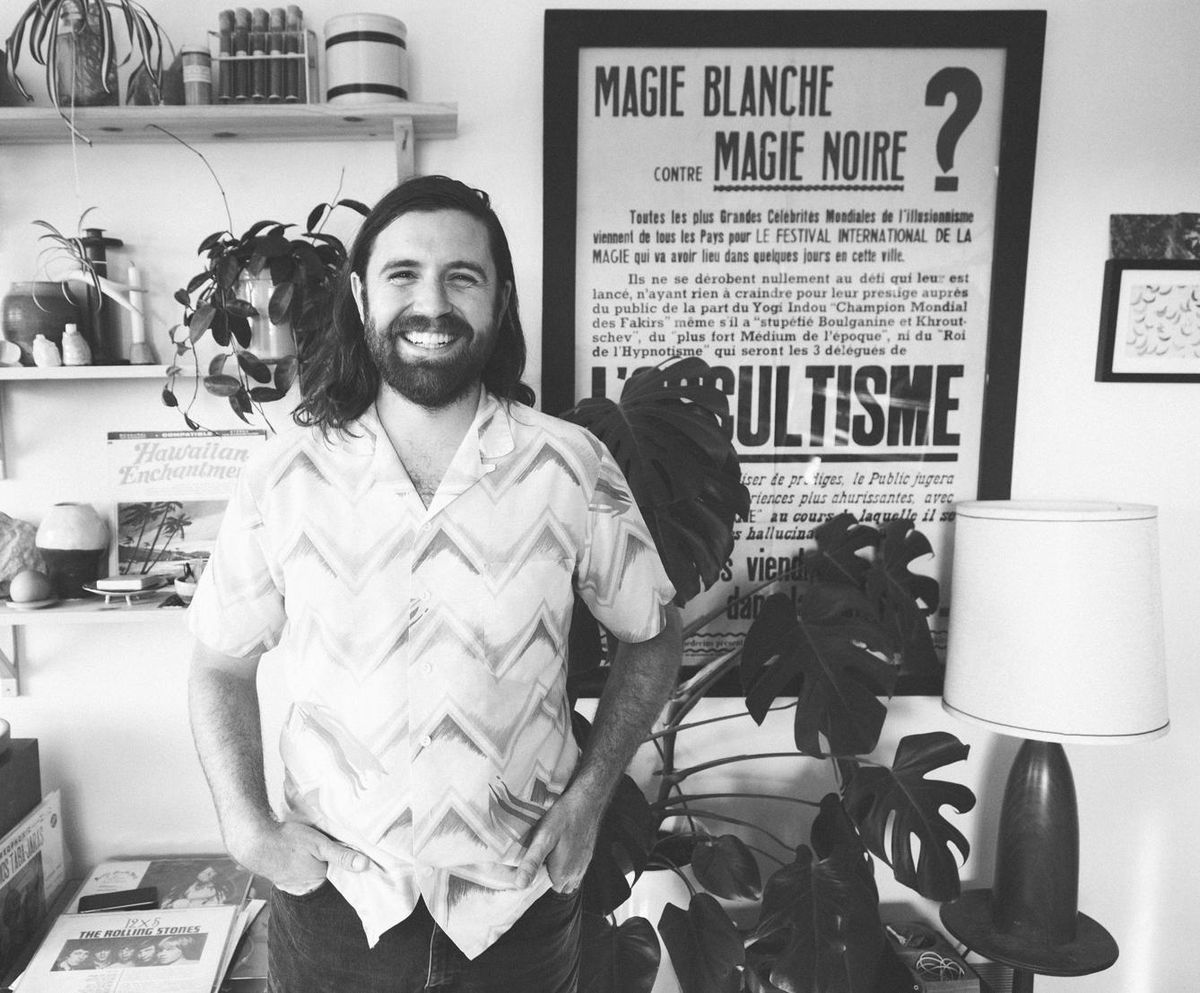After a self-imposed hiatus, Seattle’s Bryan John Appleby returns to center stage

Seattle singer/songwriter Bryan John Appleby’s most recent tweet was posted Feb. 21, 2017.
In it, he praises an essay by writer Ijeoma Oluo called “White People: I Don’t Want You to Understand Me Better, I Want You to Understand Yourselves.”
He was a little more active on Facebook last year, posting sporadically about small tours and one-off shows.
After taking a bit of a self-imposed hiatus from his own music in 2017, Appleby is getting back into the swing of things with a handful of headlining gigs, including a stop at the Bartlett on Friday.
Appleby’s hiatus came a year after the release of his sophomore album “The Narrow Valley,” a concept album that begins with an earthquake hitting a small California town and goes onto explore moments in the lives of the townspeople before the earthquake hit.
It’s a sweeping orchestral pop record with a story brought to life through Appleby’s cinematic lyrics.
“The Fault Line cracked a long smile/A hideous rock-tooth grin open wide/…A broken bedside vase, then our books flew from their case/And the walls began to shed their plaster hides,” Appleby sings on the opening track “The Fault Line.”
As a songwriter, Appleby has always looked to visual arts for inspiration.
“I’m finding just as much to get excited about in watching movies or reading really descriptive literature as I am in finding ideas in other people’s music,” he said. “Musical inspiration is definitely just one brick in the wall of inspiration. It’s not necessarily even the cornerstone.”
The first half of 2016 found Appleby and his band touring in support of the album. But after the initial bout of promotion passed and funds began to dwindle, Appleby made the decision to begin touring solo.
Appleby can see himself putting together a band for a show or two here and there, but for the time being, he’s enjoying the freedom performing solo has afforded him.
“That shift in emphasis definitely gave me moments of freedom and a little bit more air as far as not having restraints or needing to make things work on a large scale for a whole team of folks,” he said. “I’m no longer carrying all of that weight and therefore can re-examine my relationship to all sorts of things but specifically reexamine my relationship to the industry and the album cycle and all the built in, baked in expectations of turnaround time.”
With a new leisurely approach to performing and the music industry, Appleby decided to switch gears from the guitar to the drums, the first instrument he learned to play.
He backed friend Garett van der Spek, who performs as Prism Tats, for what was supposed to be one show but ended up performing nearly two dozen shows with him last year.
He also played guitar with Seattle’s Tomten.
Appleby saw his time out of the spotlight as a chance for his well of inspiration to fill up again, though he also used it as a chance to step back at a time when another man was doing plenty of talking.
“My narrative and my experience, I didn’t feel like exploring that publicly in a moment when all of a sudden there’s a really loud white guy in charge of everything in the country,” he said. “It just felt like a better year to be listening than it did to be declaring things.”
After a year of listening and with a well of inspiration filled with “hundreds of 42-second voice memos from the last two years,” Appleby has once again picked up the guitar and is in the process of writing new music.
While he’s grateful for the work of producers Sam Anderson, on “The Narrow Valley,” and Kevin Watley, on 2011’s “Fire on the Vine,” and he’s proud of the “cinematic, layered, lush” feel of “The Narrow Valley,” Appleby doesn’t think his next two or three records will be as expansive.
For one thing, he doesn’t want to go into debt to release an album, as he’s still paying off the debt from “The Narrow Valley.”
But he’s also curious to see the kind of music he can make when, as he put it, he doesn’t have bells and whistles to rely on.
“What is the kernel of an idea? What’s the thing that really is good here?” he said. “Let’s focus on polishing that rather than paying a bunch of people to make it sound really, really cool.”
And, as silly as it sounds, Appleby is looking forward to finding out, more than 10 years into his career, what he sounds like.
He said though “The Narrow Valley” and “Fire on the Vine” were released under his name, the albums were fairly collaborative efforts with Anderson and Watley, with 50 percent, the lyrics, chords and melodies, coming from Appleby and the other 50 percent, the character of the sound and how the albums were voiced, coming from the producers.
“That’s the thing I’m excited to explore,” he said. “For better or for worse, what does it sound like when it’s 90 percent me with a few friends here and there rather than these grand gestures with a producer?”